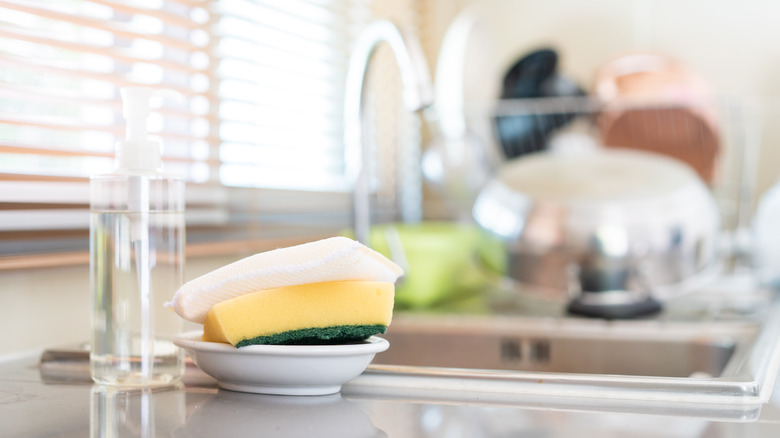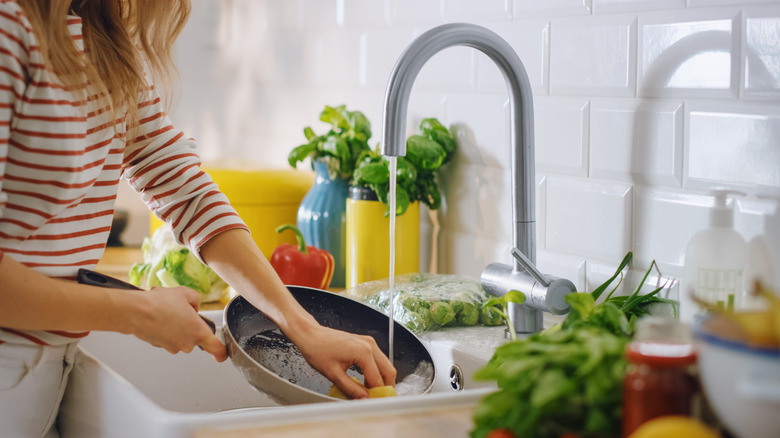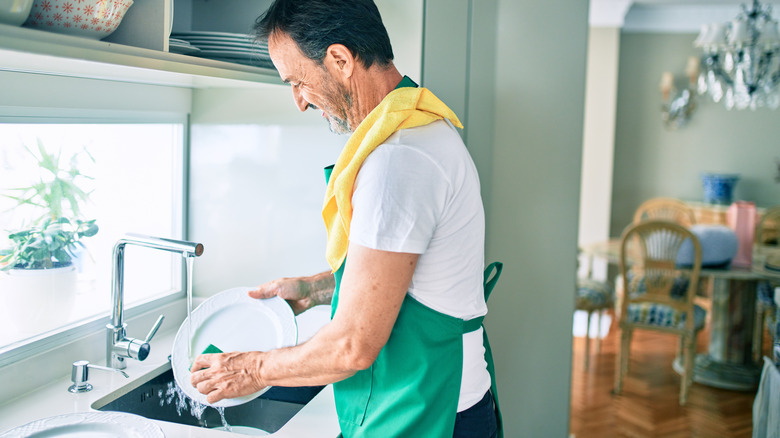Can You Use Hand Soap To Wash Your Dishes?
Today's market has a product for anything you could possibly imagine, including soaps. As Greenyards mentions, the list of different soaps out there is quite long. Glycerin soap, liquid soap, kitchen soap, laundry soap, medicated soap, and novelty soap are just a fraction of what's out there for consumers.
However, we can all agree that of all the places in your home where you use soap, the kitchen is where you use most of it, most often, for both your hands and your dishes. Most households have both hand soap and dish soap with them. But what if you run out of your dish soap? Also, with such a large variety of soaps out there, do you really need two separate ones for your hands and dishes? Or can you get away with using your hand soap on your dishes too? If these are questions you have, we've got an answer for you.
Hand soap vs. dish soap
To the average layperson, both hand soap and dish soap are just soap at the end of the day. However, Bidvest Steiner explains that they aren't quite the same. Hand soap is designed to be much gentler than traditional dish soap owing to its higher content of glycerin. It's also more soluble and foams better in hot water. As far as getting rid of germs, they explain that both hand soap and dish soap generally perform about the same as they both use similar mechanisms to disinfect.
While it's clear that hand soap is the milder one of the two, can you use it on your dishes too? According to Dropps, you might be better off using traditional dish soap to clean your dishes. They explain that dish soap is manufactured specifically for the purpose of cleaning dishes, so they're much better at getting rid of oils and food stains, where hand soap might be a little too gentle for the job.
The fact that hand soap is more soluble and foamier makes it less suitable for use on dishes. They recommend using a paste of ½ cup baking soda and water to scrub your dishes and rinse with hot water for best results.
Is it safe?
In fact, Kitchen Buds say it might not be the safest choice to use hand soap for dishwashing purposes, explaining that most hand soaps contain chemicals that aren't safe for ingestion. These toxins can remain in your dishes and have adverse effects on your health. Sulfates such as sodium lauryl sulfate and sodium laureth sulfate are commonly found in hand soaps. They make soap foamy but can cause skin or eye irritation, reproductive toxicity, and even organ toxicity if ingested. Small amounts of urea are also found in most hand soaps, added for its moisturizing properties.
Chemicals such as imidazolidinyl urea, DMDM hydantoin, and sodium hydroxymethylglycinate all contain urea and can result in heart irregularities, joint pain, or a weak immune system if ingested. Other harmful substances you'll likely find in your hand soap are parabens, preservatives, and colorants.Taking all of this into account, we think it's best to stick to dish soap for dishwashing purposes. It does a better job, and you won't accidentally put anyone's health at risk.



